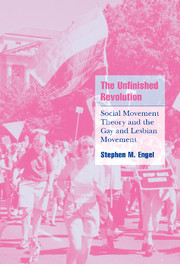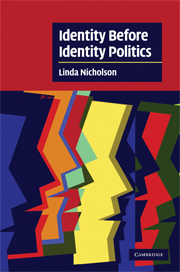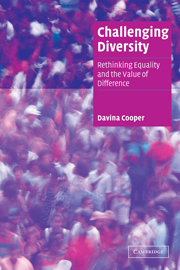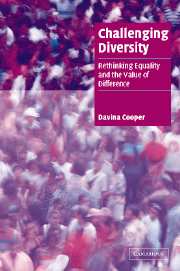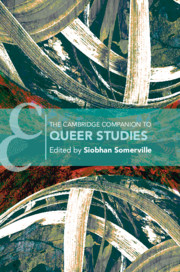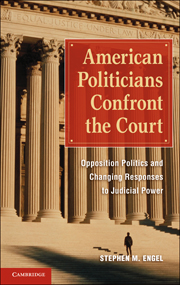The Unfinished Revolution
The Unfinished Revolution compares the post-Second World War histories of the American and British gay and lesbian movements with an eye toward understanding how distinct political institutional environments affect the development, strategies, goals, and outcomes of a social movement. The two case study chapters function as brief historical sketches that provide an introduction to British and American gay and lesbian history. An appendix provides a useful evaluative summary of common social movement theories. The book will be of value to academics and students of sociology, political science, and history.
- Interdisciplinary in scope, it will be of value to academics and students of sociology, political science, and history
- Historical case sketches provide an introduction to British and American gay and lesbian history
- The appendix provides a useful evaluative summary of common social movement theory
Reviews & endorsements
"In a comparative case study of US and British gay and lesbian movements since WWII, Engel engages new social movement theory and theories of collective action, integrating analysis of political opportunity structures into a political process model that accounts for the when and why of social mobilization.... A useful contribution to gay and lesbian studies and general social movement scholarship, especially in sociology." Choice
"The Unfinished Revolution is remarkable for the elegance of its intellectual architecture." The Gay & Lesbian Review
Product details
April 2011Adobe eBook Reader
9780511836817
0 pages
0kg
11 b/w illus. 4 tables
This ISBN is for an eBook version which is distributed on our behalf by a third party.
Table of Contents
- Introduction: opening remarks
- 1. Asked and answered: how questions can condition conclusions in social movement theory
- 2. Tracing the rainbow: an historical sketch of the American gay and lesbian movement
- 3. Tracing the rainbow: an historical sketch of the English gay and lesbian movement
- 4. Where and how it comes to pass: interest group interaction with political institutions
- 5. Asking the unasked question: grappling with the culture variable
- Conclusion: final thoughts.

